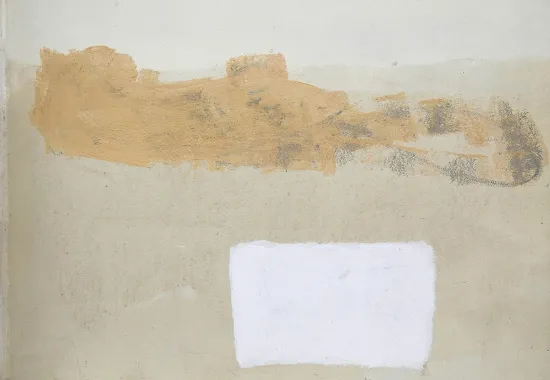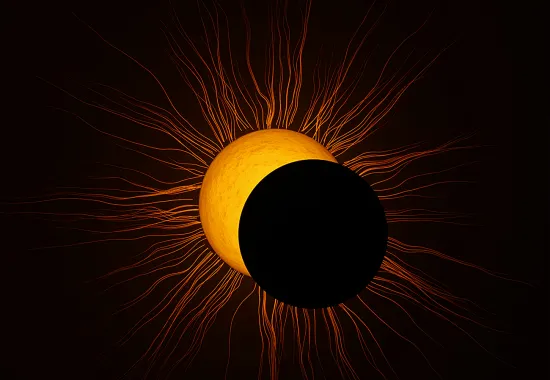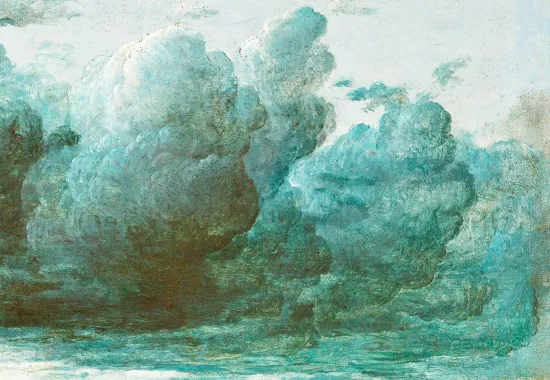"Poetry, Natural Selection, and Chance: An Essay on Teaching"

As the semester ends, I find myself trying to gauge the slipperiness of this thing called improvement. Has Dave’s portfolio of writing displayed that he’s become a better poet this semester? Yes, his specifics are more specific, his forms more formed, but there’s something I realize I haven’t talked about enough: happenstance. The beauty of it. The necessity.
In my desire to impart the craft of poetry, I didn’t emphasize enough the chance of poetry. And chance is what gives life, life.
I don’t mean that in a metaphoric way. Take, for example, the endangered Siberian tiger. We have approximately 400-500 living in the wild. A species can only survive if there is genetic diversity—and the Siberian tiger has a shockingly low amount of diversity within the existing population. One study recently argued that, in essence, it’s as if only thirty-five adults are reproducing. Another study in the journal of Mammalian Biology cites fewer than fourteen. Whatever the number, it’s catastrophic. Any disease or harmful genetic trait occurring in this generation will likely be passed on to the next, eventually wiping them all out, because there isn’t enough genetic diversity within the group. And what causes this all-important genetic diversity? Chance—otherwise known as mutations. Mutations can have either a positive, negative, or, what’s most often the case, a neutral effect. When a mutation improves an organism’s chances of survival, that mutation is more likely to be passed on.
Yet, as much as we know things happen by chance—that people don’t always act in their best interests, that viewpoints are rarely consistent—my students try to write poems that provide clear transitions and reasons. They too often create tidy emotional responses and pinpoint the cause of those tidy responses. And this is partly my fault. I could have done a better job this past semester pointing out the leaps, the illogic—the chance—in poetry.
Richard Hugo reminds of us this truth in his book The Triggering Town: “…In art, as seemingly in life, things happen without cause. They just happen. A poem seldom finds room for explanations, motivations, or reason” (8). A great example of a poem that allows the incongruities of ourselves to stand is “To a Blossoming Pear Tree” by James Wright. In this poem, the speaker gazes upon a pear tree and attempts to tell it “something human.” An old man had once approached the speaker on the street and stroked his face:
Give it to me, he begged.
I’ll pay you anything.
I flinched. Both terrified,
we slunk away… (lines 17-20)
The speaker continues to address the pear tree, asking how the tree could possibly care about this man “… so near death / He was willing to take / Any love he could get” (lines 27-29). While that statement might explain the old man’s motivations, the poem doesn’t explain the speaker’s reaction to it: terror and hatred toward the man that leads the speaker into imagining “kicking him in his dead groin / just for the fun of it.”
The poem ends with a beautiful stanza that serves as a lament for all of us—for our failings as people and our inability to see one another not as adversaries, but brothers.
Young tree, unburdened
By anything but your beautiful natural blossoms
And dew, the dark
Blood in my body drags me
Down with my brother. (lines 27-42)
The leap between the penultimate and final stanza is a necessary leap—and like all leaps, there is a chance one won’t nail the landing. But that’s the risk one has to take. A more recent example is Adam Clay’s poem “Our Daily Becoming.” In this poem, we see how chance augments the statements in the poem, suggesting that despite the information available to us, or because of the information available to us, what’s right in front of us is often unknowable.
In the beginning seven lines of the poem, an assertion is made followed by examples: “It should be easier to distinguish light from dark” (lines 3-4), to distinguish what we know from what we don’t know like “fabrications from memory” or dew from rain. What comes next is one of the leaps the poem makes into abstraction, into that world of searching and unknowing: “In these moments / of desperation, a sentence / serves as a halo” (lines 7-9). I’m not entirely sure what this means, and here is the risk in the poem: Adam Clay decides to have the feel of the language stand in for security of thought. A halo, found around planets or an angel’s head, suddenly acts more like a chin-up bar than a ring of light. We can grasp onto this halo, sense that it’s something positive, something almost that we can get on top of—but ultimately can’t. The work in this line is accomplished through sound, connotation, and associative leaps. And in so doing, it opens up the possibility of chance. Frankly, it’s a line that I could imagine someone asking to clarify in a workshop because of its ambiguity. But the confusion of the line recreates for the reader the speaker’s confusion.
Part of the aesthetic value of a poem is that it can’t all be accounted for logically. The bolts and jolts of syntax, the unexpected curves of language, the elemental interplay between the chosen subgenre (be it sonnet, free verse, pantoum, etc.) and subject…. These are the concerns of a lyricist.
Something else that can’t always be accounted for logically is the success of a class, which brings me back to my role as the professor. What should I do to encourage chance? The truth is, I need to be more comfortable with chance myself. With assigning exercises that may or may not work, with readings that may veer widely from the students’ tastes or my own, with assigning poems that use newer elements like video, hyperlinks, or collaboration… All of this helps. And then there is just the discussion of the poems themselves, of lines, juxtapositions, and images that blow the roof off a poem rather than hammering down its shingles. When I see those moments, I need to point them out. I need to linger over that line and say: “I have no idea how we got there, but I loved the trip.” To a certain degree, I need to encourage messiness.
I cannot help but think of that disheveled student teetering into my office under the weight of library books. From the bags under the eyes, the grease in the hair, the obsessive layering of one fleece item on top of another, I can tell the student hasn’t been sleeping before he tells me as much. The story is one we all know: he’s been reading, so much reading, and he loves this writer, and he thought he knew what he was going to say, but now he doesn’t. And one thing he reads contradicts the next, and out he wails: I’m lost! And that is when I say: “Yes. Yes, you finally are. Let’s see if we can get more lost. Loster.”
Works Cited:
Clay, Adam. “Our Daily Becoming” from Poem-a-Day. July 9, 2014. Retrieved May 18, 2015. http://www.poets.org/poetsorg/poem/our-daily-becoming
Hugo, Richard. The Triggering Town: Lectures and Essays on Poetry and Writing. New York: W.W. Norton & Company, 1979.
“Misconceptions About Natural Selection” in Understanding Evolution. Retrieved May 18, 2015 from http://evolution.berkeley.edu/evolibrary/article/evo_32
Wright, James. “To a Blossoming Pear Tree.” Above the River: The Complete Poems. New York: The Noonday Press, 1990.
Recommended
Mercy
Eclipsing
Psychic Numbing





